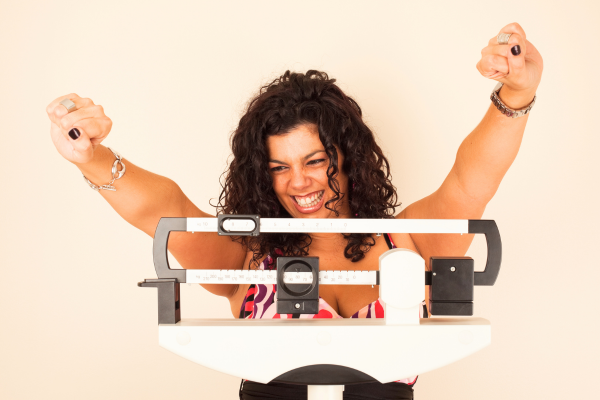January 24, 2017
This information is for educational purposes only. Speak with a healthcare practitioner before changing your diet or lifestyle.
Maintaining a healthy weight is important for your overall health–including your kidneys. Why? Carrying extra weight can force the kidneys to work harder. It also increases the risk of developing diabetes and high blood pressure, the two leading causes of kidney disease.
The good news? Small changes can lead to big results. You don't need to be the "perfect weight" to see the benefits of weight loss. Losing just 5-10% of your body weight can significantly lower the risk of developing diabetes, high blood pressure, and high cholesterol.
Here are five steps you can take to lose weight and protect your kidney health.
1. Understand Your Body Fat Percentage
Body Mass Index or BMI is an estimate of body fat based on height and weight. It is a good screening tool but not specific to the individual.
There are four BMI categories:
- Underweight: Less than 18.5
- Average weight: 18.5–24.9
- Overweight: 25–29.9
- Obesity: BMI of 30 or greater
"BMI doesn't tell us how weight is distributed," said Golnaz Ghomeshi Friedman, renal dietitian. "Looking at the accumulation of fat in one's midsection can be really helpful here. How much weight is in the belly compared to the person's height can be a good indicator of future health problems."
To measure your waist:
- Wrap a tape measure around your body at belly button level, starting at the top of your hip bone.
- Make sure the tape measure is straight and not too tight.
- Breathe out normally and check the number.
In the U.S., a waist size over 40 inches for men or those assigned male at birth and 35 inches for women or those assigned female at birth may mean a higher risk for health problems.
Understanding your body as it is now can help you set reasonable weight loss goals.
Join the NKF Blog Newsletter
Get inspirational stories and kidney disease resources delivered to your inbox every month. You'll gain practical insights and expert advice to help you better understand and manage your kidney health no matter where you are on your kidney journey. Subscribe today.
2. Diet
A varied healthy diet is key to getting to and maintaining a healthy weight.
Stary by paying attention to the types of foods you eat. Try to limit saturated and trans fats, excess salt, and added sugars. Aim for nutritious foods like fiber, lean proteins, and monounsaturated or polyunsaturated fats. Fat is essential to one's diet, so don't cut it out completely.
4. Check Your Kidneys
The earlier you catch kidney disease, the more likely you'll be able to better manage it and protect your kidney function. It's easy to find out. Ask your healthcare professional for these two simple tests:
- Urine test: The urine albumin-creatinine ratio (uACR) test looks at levels of albumin, a protein, and creatinine, a waste product, in your urine. Healthy kidneys usually keep albumin in the blood and filter out creatinine in the urine.
- Blood test: The estimated glomerular filtration rate (eGFR) checks the blood for creatinine. The kidneys usually remove this waste product.
5. Keep an Eye on Blood Sugar and Blood Pressure
Diabetes and high blood pressure are the leading causes of kidney disease. Both can damage the blood vessels in your kidneys, making it harder for them to filter waste effectively.
If you have diabetes, work with your healthcare team to keep blood sugar levels within your target range. This may involve regular monitoring, medication, and lifestyle adjustments, including diet and exercise.
High blood pressure puts extra strain on your kidneys. If your blood pressure is above your target range, talk to a healthcare provider about ways to lower it. They may ask you to reduce sodium intake, exercise regularly, manage stress, and take medication.
Are you at risk of kidney disease? Take this one-minute quiz to find out









